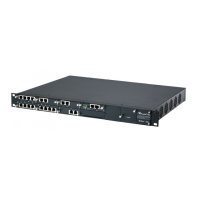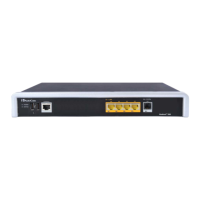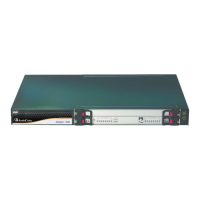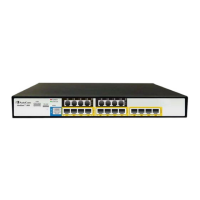Version 7.0 351 Mediant 3000
User's Manual 18. Control Network
Parameter Description
Classification by Proxy Set occurs only if classification based on the
device's registration database fails (i.e., the INVITE is not from a
registered user).
SBC Client Forking Mode
[IPGroup_EnableSBCClie
ntForking]
Defines call forking of INVITE messages to up to five separate SIP
outgoing legs for User-type IP Groups. This occurs if multiple contacts
are registered under the same AOR in the device's registration database.
[0] Sequential = (Default) Sequentially sends the INVITE to each
contact. If there is no answer from the first contact, it sends the
INVITE to the second contact, and so on until a contact
contact answers, the call fails or is routed to an alternative
destination, if configured.
[1] Parallel = Sends the INVITE simultaneously to all contacts. The
call is established with the first contact that answers.
[2] Sequential Available Only = Sequentially sends the INVITE only to
available contacts (i.e., not busy). If there is no answer from the first
available contact, it sends the INVITE to the second contact, and so
on until a contact answers. If no contact answers, the call fails or is
routed to an alternative destination, if configured.
Note: The device can also fork INVITE messages received for a
Request-URI of a specific contact (user) registered in the database to all
other users located under the same AOR as the specific contact. This is
configured using the SBCSendInviteToAllContacts parameter.
Inbound Message
Manipulation Set
[IPGroup_InboundManSet
]
Assigns a Message Manipulation Set (rule) to the IP Group for SIP
message manipulation on the inbound leg.
For configuring Message Manipulation rules, see Configuring SIP
Message Manipulation on page 371.
Note: The IPGroup_SIPGroupName parameter overrides inbound
message manipulation rules (assigned to the IPGroup_InboundManSet
parameter) that manipulate the host name in Request-URI, To, and/or
From SIP headers. If you want to manipulate the host name using
message manipulation rules in any of these SIP headers, you must apply
your manipulation rule (Manipulation Set ID) to the IP Group as an
Outbound Message Manipulation Set (see the
IPGroup_OutboundManSet parameter), when the IP Group is the
destination of the call.
Outbound Message
Manipulation Set
[IPGroup_OutboundManS
et]
Assigns a Message Manipulation Set (rule) to the IP Group for SIP
message manipulation on the outbound leg.
For configuring Message Manipulation rules, see Configuring SIP
Message Manipulation on page 371.
Note: If you assign a Message Manipulation Set ID that includes rules
for manipulating the host name in the Request-URI, To, and/or From SIP
headers, the parameter overrides the IPGroup_SIPGroupName
parameter.
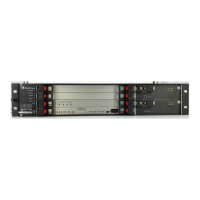
